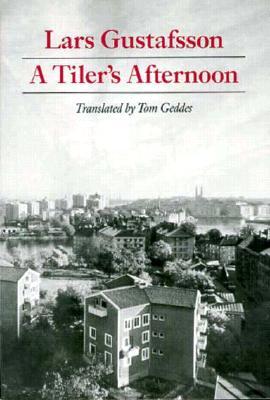In his newest novel, A Tiler's Afternoon, Lars Gustafsson invites us to share a day's work with Torsten Bergman, an aging, semi-retired tile-layer. On this particular day, Torsten arrives at an empty suburban villa, partially renovated and left unfinished. A master craftsman, he knows what to do and goes about his business, all the while reminiscing over his past, considering what may be left of his future, daydreaming about the mysterious Sophie K., the absent occupant of the villa's upstairs flat. No one checks on the work. With the close of the day comes Torsten's growing unease over hours spent on perhaps futile labor. "But at that moment there was a loud knocking at the door - no, more of a pounding than a knocking. It sounded as if by some strange coincidence the whole world had come to life again and was trying to get in." Like Samuel Beckett, Lars Gustafsson turns the plainest of circumstances into poignant universals. There are yet roads to travel after we say we cannot go on.

In his newest novel, A Tiler's Afternoon, Lars Gustafsson invites us to share a day's work with Torsten Bergman, an aging, semi-retired tile-layer. On this particular day, Torsten arrives at an empty suburban villa, partially renovated and left unfinished. A master craftsman, he knows what to do and goes about his business, all the while reminiscing over his past, considering what may be left of his future, daydreaming about the mysterious Sophie K., the absent occupant of the villa's upstairs flat. No one checks on the work. With the close of the day comes Torsten's growing unease over hours spent on perhaps futile labor. "But at that moment there was a loud knocking at the door - no, more of a pounding than a knocking. It sounded as if by some strange coincidence the whole world had come to life again and was trying to get in." Like Samuel Beckett, Lars Gustafsson turns the plainest of circumstances into poignant universals. There are yet roads to travel after we say we cannot go on.